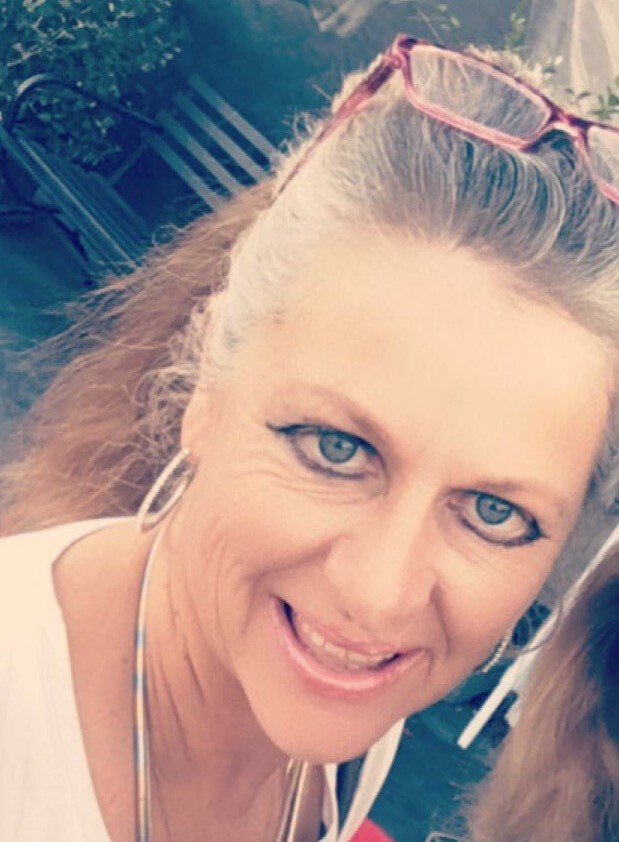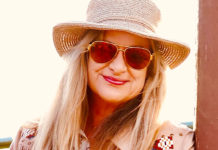I’d watch her sleeping on her back. Peaceful, still, like a shroud. She is still breathing though, lightly. I study her chest moving up and down — tiny, smooth breaths. I quietly move across the room to the bathroom, trying not to wake her. But just like forever, my movement would provoke one eye to open and a smile to spread across her tiny, pale face. Stairs are now a problem, a little breathlessness. Swelling from the steroids, swollen stomach, gas, irritation. Difficulties with the bowels, as ever. She stays away from salt and sugar to help her systems, but I see her body struggling now as never before.
We are staying in a cramped bed and breakfast in the old part of Antalya. It’s classic old town beauty belies its trickiness and functionality, when the body isn’t working right anymore. The stairs are an issue, she feels crowded in the room, it’s humid outside. She wants to go home and, as her driver, I need to make that happen. We go to the hospital and she has the brain tumor zapped, though, ironically, the tumor is the least of her current issues. We talk to her chief oncologist and they are putting their heads together, wondering what next they can do for her, while there is a little time left. Is there any time left? Her liver levels are up. They will not give her chemo under those conditions. Without chemo, yes. She knows, her time will run out. I take her home and, immediately, she feels better, she is calm and accepting again of whatever comes her way.
She wants to go to the sea and walk down the beach. She can no longer swim, but she can float with her noodle and she is happy with that. It’s enough to be in the clear blue warm waters of her home. She is calm, accepting. We spend hours in the warm azures of the Med and we are so happy in those moments, watching the silver twinkles on the water, looking at the changing moods of the sky. We are in one of her very happiest of places — a small tropical seaside place called Chirale right on top of the historical Olympos.
We stay at Tunay’s pension — good friends of the family — he and his wife Durgur run a special place with delicious food, comfortable cabins and lovely gardens. She and Ali were married there in the gardens almost four years ago to the day. We sit in a café nearby and play Scrabble, hide a little from the strong rays of the June sun. She can sleep on the beach there, as much as she sleeps anywhere. I watch her from the sea, lying on the sun lounger and I wonder if she is still breathing. I wonder that a lot these days. If she would stop breathing there in the sun lounger on the beach near the water that she loves, then she would die happy. It is there that we find ourselves these days. This is a magical spot and always will be. I tell her I want to bring my granddaughter here one day. She smiles.
Her other happy place — and perhaps the crown in her kingdom — is their home in the mountains overlooking the bay and the agricultural area of Kumluca, not dissimilar to our Salinas Valley. Her husband custom-built the home near his village a few years back, when he was losing his daughter Didem to leukemia. He had hoped the mountain airs and organic produce would help her recover, but she died, just a teenager. Her death nearly broke him. But the mountain home is a happy place now.
My sister adores their house. The wide-open social kitchen, the huge flagstone floors and high wooden ceilings, fireplaces and wood stoves, views galore and cozy reading and snoozing spots. She loves to cook there, to pick the fruits and vegetables from their large garden, breathe in the mountain airs. Breakfast is enjoyed on the verandah or terrace outside, overlooking the bay below. It’s a very important meal in Turkey — eggs, cheeses, tomatoes, olives, breads, yoghurts, fruits and, of course, multiple glasses of chai tea. The family always eats together — it’s a lovely custom. It’s the peaceful time before everyone starts rushing around to wherever they have to go. My sister’s family rushes more than most. What are they rushing for, why do they not savor the moments? Is time so short?
It’s the season of Biram, a time of festivities. We are headed to Mama’s house for the special dinner to be held at dusk on the last day of fasting. The smell of roasting goat makes me want to run outside, but it is their custom and I behave. I tell myself that I do not have to eat it, they have kindly made me an alternative, as they did last year. The children play, people laugh. Everything seems like a normal family celebration, but then we are rushing again. We must up and out early, we must visit relatives. Why must we, we did that last night at the goat feast. Isn’t our time together so short? I give my sister a look, she catches my vibe and she changes the plan. We will be sitting on the terrace, enjoying a leisurely breakfast together, savoring the views and the food and the peace. We will not be rushing up and out. And so it was a much better day after that. She showed me where Ali’s daughter and father are buried and where she will be too, before sundown on the day she passes.
“You won’t make it, sis,” she tells me, reading my mind. A surreal conversation that you should always have, like it or not, when time is so short. And her time here is now limited, we know that. How limited though?
I am leaving her again. It’s 3:30 a.m. when my cab arrives to take me and, this time, she gets two hugs. As usual, she has made me my cup of coffee, as she always does when I am staying. Her tiny frame is so fragile I hold her gently, as if she might break. I do feel as if this will be the last time I hug her in person.
“I don’t want people rushing to my sick bed,” she tells me. “Just sitting there watching me sleep … ugh!” The sand is running out on the timer; there are only grains left. Don’t waste it, don’t waste it. There’s not much left.
I’m home and she is back in the hospital. Things seem to be failing, body parts are worn. The liver isn’t working properly, the bowels either. And let’s not even get started on the brain tumor. The issues seem to be growing and multiplying, compounding problems cascading swiftly on the downhill slope. They put her on a drip — a deep cleanse of the liver. No food or drink for a few days. She is woozy, dry-mouthed, tired.
I wonder, if I were in her hospital room now, would I see her short breaths ease and stop? Why do I keep wondering that. Something in the human condition is preparing me for that, I’m sure of that. They give her one and a half to two months to live, what do they know. Do they know something I don’t? My mother lived three weeks of a six- to 18-month diagnosis. I don’t believe in that stuff and, if sister knows it, she’s not dwelling on it. She has consistently defied all expectations, these past 16 years of fighting her cancer battle and smiling along the way.
She arrives home after her marathon drip week in hospital. She is craving water melon. They have the best melons there. In the sunset light of her terrace, her skin is no longer grey, but bronze once more. She has a little more energy and brightness. She is home. A few more grains are added back into the timer. Time. How much more time?
Contact: Lu******@*ol.com.













